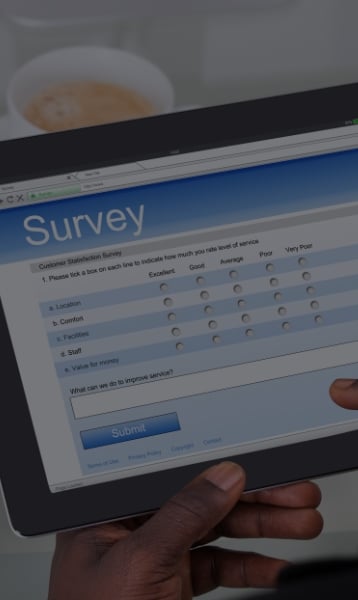The benchmarking portal gives you access to all reports available for STD, LTD, FML & WC.
Wellness Mission Critical: Closing the Gap on Preventive Care could Reduce Lost Productivity for Employers

Marshall Riddle
Wellness Mission Critical: Closing the Gap on Preventive Care could Reduce Lost Productivity for Employers
Integrated Benefits Institute study finds increased screenings for depression and detection of chronic conditions before symptoms present could have greatest impact on disability costs
OAKLAND, CA – August 26, 2020 –Depression affects one in eight employees costing employers more than other chronic conditions and even some cancers. Yet only one in 10 people get the recommended screening for depression. Closing screening gaps for depression—as well as for some cancers and chronic conditions such as hypertension, diabetes, and obesity—represents a major savings opportunity if diseases are detected before employee leaves are required for severe cases. These are among the findings of a new study by the Integrated Benefits Institute (IBI), a non-profit health and productivity research organization.
“Our research reinforces that screenings for serious health issues can save lives, reduce treatment recovery times and lower healthcare costs, while also impacting productivity and business performance for employers,” said Kelly McDevitt, President, IBI. “Preventive care was vitally important before COVID-19, but employers sometimes struggled to achieve high compliance. With delayed care, and barriers to care in the current environment, it has become critical that employers attempt to remove as many obstacles as possible and encourage employees and their families to get back on the pathway to wellness.”
The study also found the average disability cost for people who take leave for a health issue in less complicated stages was between 4% to 52% lower than the costs for those on leave with a more severe health condition.
Gaps for recommended cancer screenings ranged from 19% (cervical cancers) to 35% (colorectal cancers). These lost opportunities to initiate early treatments may also result in longer recovery times, more time away from work on leave, and an increased chance of exits from the labor force for older employees.
“The durations for cancers were found to be longer for employees who are older when they go out on leave, suggesting the value of screenings that can detect cancers at the earliest meaningful opportunity to begin treatment,” said Erin Peterson, IBI Researcher and study lead author at IBI.
Other study findings include:
- The cost difference between severe and mild forms of diseases is most dramatic for those with hypertension (a cost difference of $6,019 per incidence) and depression (difference of $4,622), with the lowest impact for diabetes (difference of $387).
- Depression represents a disproportionately high productivity cost to employers: averaging $17 per employee per year in disability wage replacement costs compared with $2 for diabetes, the next-highest chronic condition.
- Screening gaps are less dramatic for cancers but opportunities for improvement in disability leave is still substantial. Disability costs range from under $1 per employee per year for cervical cancer to more than $3 for colorectal cancers and more than $5 for breast cancer. Employees who take leave for cancer (specifically breast and cervical cancers for women and colorectal cancer for both genders) at earlier ages take less time off from work than those who enter the disability system at a later age, suggesting the potential for lower disability leave costs and better health outcomes if cancers are detected earlier on.
The full research report can be found here: https://www.ibiweb.org/resource/preventive-screenings/.
IBI is hosting a webinar on September 9 at 10:00 am PT/1:00 pm ET to present the research findings. The event will also include a discussion with Kathleen Herath, recently retired Associate Vice President Wellbeing & Safety at Nationwide, who will share insight on screening initiatives and offer guidance on how to address barriers to preventive care during the COVID-19 pandemic. Register here: www.ibiweb.org/screenings-webinar/
About Integrated Benefits Institute
The Integrated Benefit Institute’s independent research, industry-leading tools and data resources help companies link health-related programs to the outcomes that maximize the contributions of people to productivity and business performance. Founded in 1995, IBI is a national nonprofit research organization and business association serving 1,200 employer and supplier members and their 22 million employees. For additional information, please visit ibiweb.org and follow us on Twitter and LinkedIn.
# # #
- December 2024 (1)
- November 2024 (1)
- July 2024 (1)
- June 2024 (1)
- March 2024 (1)
- February 2024 (1)
- January 2024 (1)
- December 2023 (1)
- November 2023 (1)
- August 2023 (1)
- July 2023 (1)
- May 2023 (2)
- February 2023 (2)
- January 2023 (2)
- November 2022 (1)
- October 2022 (1)
- September 2022 (1)
- March 2022 (1)
- February 2022 (1)
- January 2022 (1)
- December 2021 (1)
- September 2021 (1)
- April 2021 (2)
- December 2020 (1)
- October 2020 (1)
- September 2020 (2)
- August 2020 (2)
- July 2020 (1)
- April 2020 (1)
- March 2020 (1)
- November 2019 (1)
- September 2019 (1)
- July 2019 (1)
- June 2019 (2)
- May 2019 (1)
- April 2019 (1)
- February 2019 (1)
- November 2018 (1)
- September 2018 (1)
- August 2018 (1)
- June 2018 (1)
- March 2018 (1)
- March 2017 (1)
- February 2017 (2)
- Absence (1)
- Absence Management (1)
- analytics (1)
- Behavioral Health (1)
- Benchmarking (2)
- Benchmarking Analytics (1)
- Benefit Design (2)
- Benefits + Plan Design (2)
- Blog (1)
- Business Performance (1)
- CDHP (1)
- CFO Survey (2)
- COVID-19 (6)
- Depression (3)
- director (1)
- Disability Leave (7)
- Extreme Weather (2)
- Family + Parental Leave (3)
- FMLA (2)
- Health + Productivity Management (3)
- Healthcare (1)
- Healthcare Costs (2)
- lost time (1)
- Manage Absence (2)
- Medication Adherence (1)
- Mental + Emotional Health (4)
- Mental Health (2)
- new hire (1)
- Parental / Family Leave (1)
- Patient-Centered (1)
- Press Releases (50)
- Preventive Care (1)
- Productivity (3)
- Research (2)
- Research Report (1)
- Return to Work (1)
- Sick Leave (2)
- Telehealth (1)
- Telemedicine (1)
- Worker's Compensation (1)
- Workplace Health Programs (1)




























